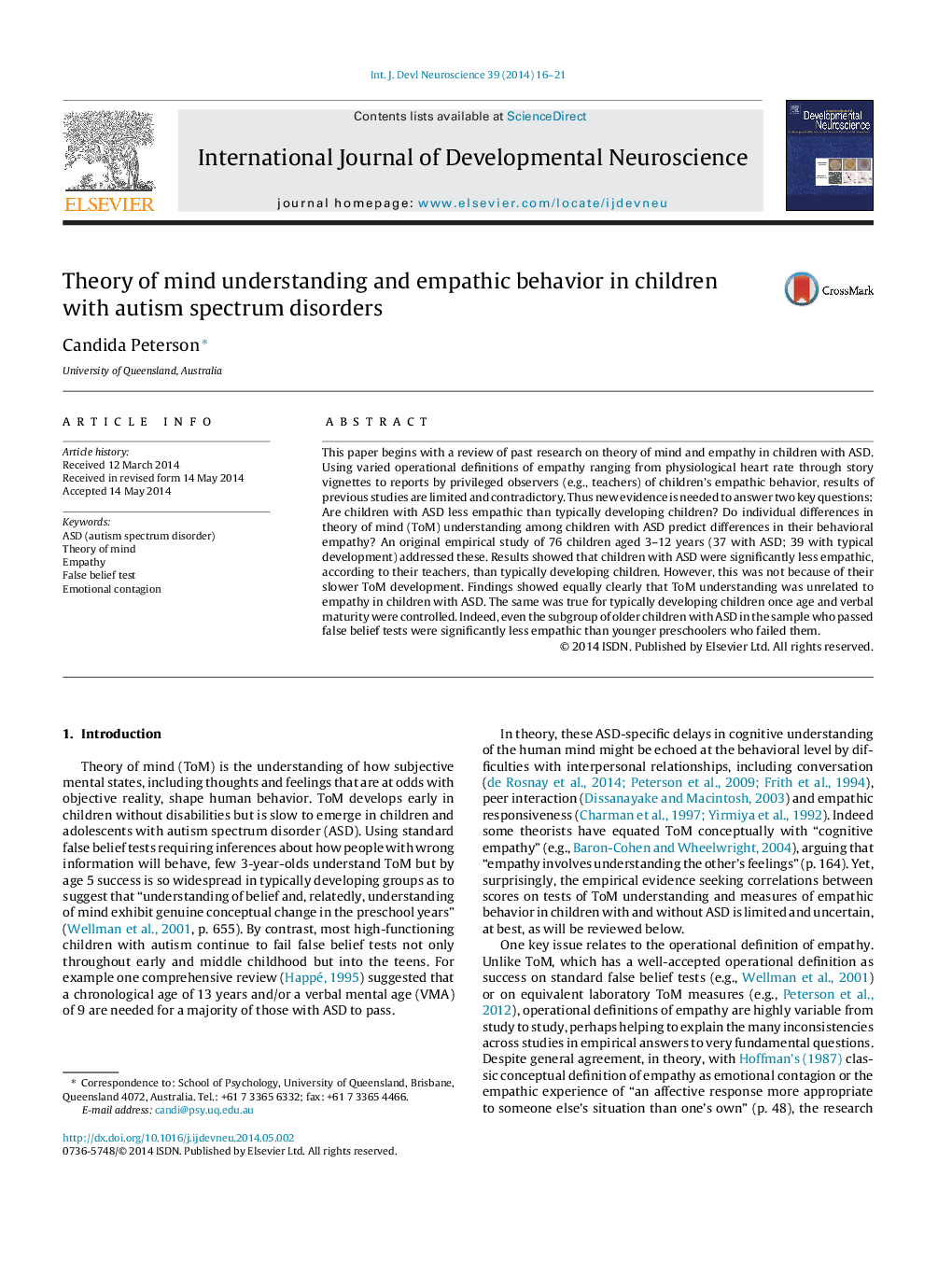| Article ID | Journal | Published Year | Pages | File Type |
|---|---|---|---|---|
| 2785891 | International Journal of Developmental Neuroscience | 2014 | 6 Pages |
•A comprehensive review shows past research has not yet answered two key questions about autism and empathy.•Are children with autism spectrum disorders (ASD) less empathic than matched typical developers?•Is a cognitive understanding of others’ minds (ToM) linked with empathic everyday behavior in children with ASD?•An original empirical study of 76 children 3–12 years (37 with ASD) answers the first question “yes” and the second “no”.•Results challenge several commonsense beliefs about ASD with implications for education and therapy.
This paper begins with a review of past research on theory of mind and empathy in children with ASD. Using varied operational definitions of empathy ranging from physiological heart rate through story vignettes to reports by privileged observers (e.g., teachers) of children's empathic behavior, results of previous studies are limited and contradictory. Thus new evidence is needed to answer two key questions: Are children with ASD less empathic than typically developing children? Do individual differences in theory of mind (ToM) understanding among children with ASD predict differences in their behavioral empathy? An original empirical study of 76 children aged 3–12 years (37 with ASD; 39 with typical development) addressed these. Results showed that children with ASD were significantly less empathic, according to their teachers, than typically developing children. However, this was not because of their slower ToM development. Findings showed equally clearly that ToM understanding was unrelated to empathy in children with ASD. The same was true for typically developing children once age and verbal maturity were controlled. Indeed, even the subgroup of older children with ASD in the sample who passed false belief tests were significantly less empathic than younger preschoolers who failed them.
